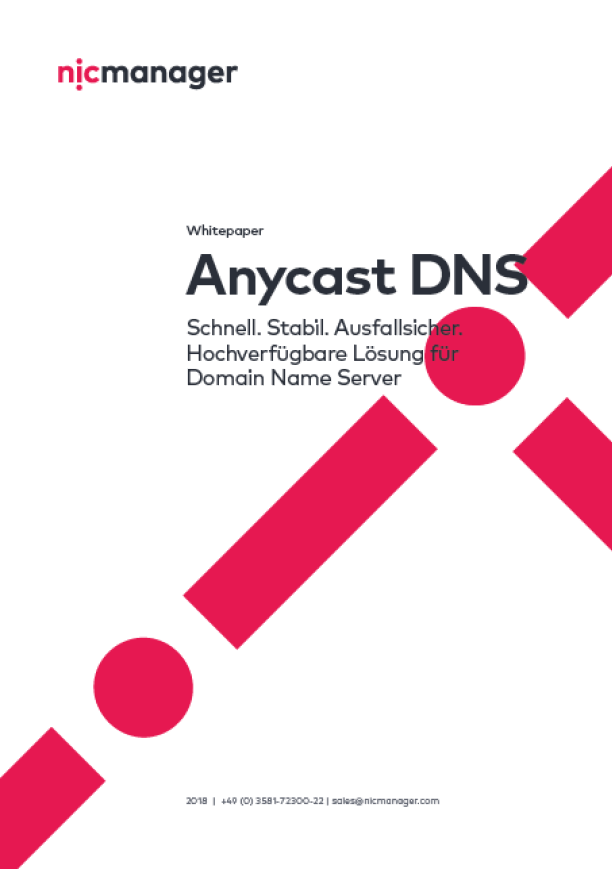Anycast DNS - fast and high-availability
Fail-safe and signed DNS zones at the touch of a button
Request Anycast DNS White Paper
Fail-safe and signed DNS zones at the touch of a button
Request Anycast DNS White Paper
The Domain Name System (DNS) is used to resolve domain names (such as wikipedia.org) into IP addresses. For example, a browser (like Google Chrome) makes a request to the DNS to find out the IP address of the web server (of wikipedia.org) and finally be able to visit the website
Every server directly connected to the public Internet has a unique IP address. If one IP address is assigned to one physical server per IP address, this is called "Unicast". This infrastructure is very vulnerable to failures and is considered obsolete. Due to maintenance work or power failure of a server, critical services lie flat. With "Anycast", on the other hand, behind an IP address there is a cloud of servers. This offers higher availability of services and load balancing of requests as well as other advantages
"Anycast DNS" is a combination of both technologies to use the advantages of Anycast in the demanding DNS. Instead of a one-to-one relationship like unicast, Anycast connects one IP address on the Internet to several DNS servers. In the case of a query (e.g. by calling google.de) the request can be answered by a number of servers, usually the geographically closest server responding. This reduces latency worldwide, increases availability of the respective DNS service and provides additional protection against DDoS attacks. A simple concept which, in contrast to unicast, meets today's requirements for server infrastructures
Unicast and Anycast in comparison
